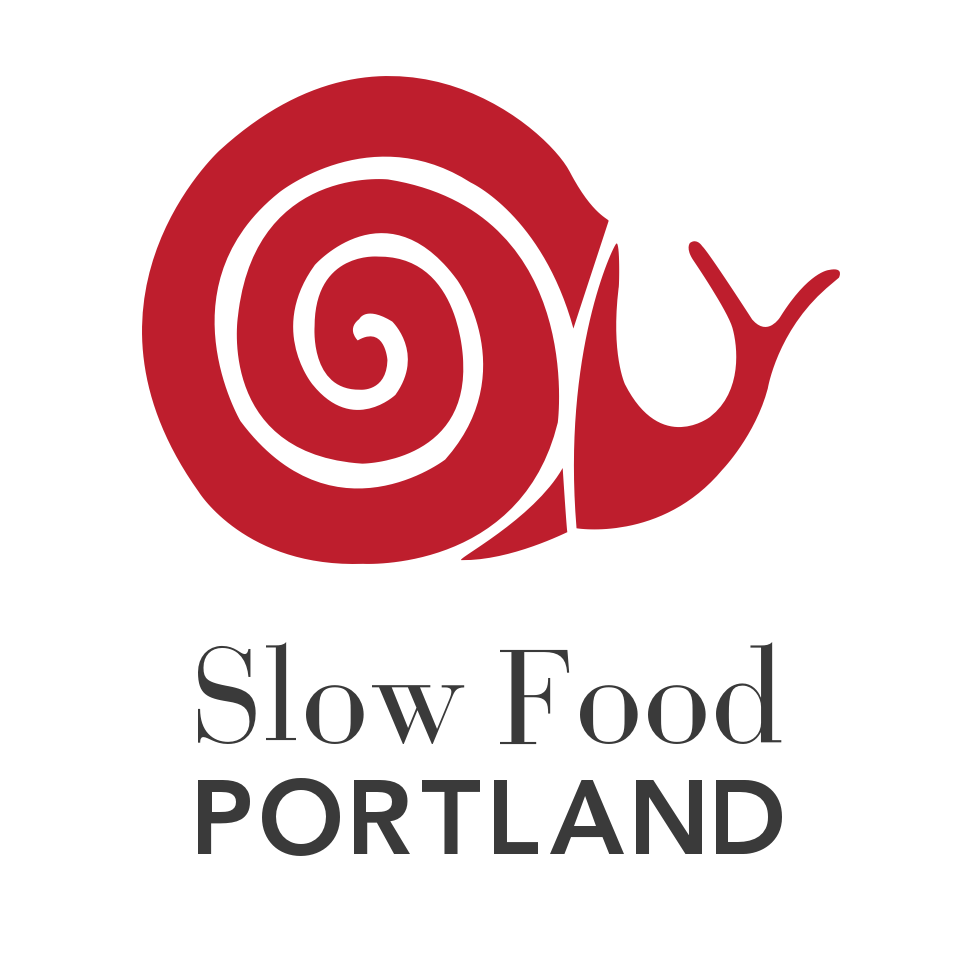2021 Market Scouts: Connecting Youth with the Local Food System
By Sruthi Eapen, Research and Advocacy Intern at Slow Food Portland. Edited by Beth Gates, Slow Food Portland Board Chair.
The Market Scouts program aims to help kids (ages 3-12) learn about and appreciate their local food system. From June through November, Slow Food Portland and the Portland Farmers Market partner to offer this educational program at the Lents International Farmers Market in SE Portland. Every Sunday the kids get to participate in activities to learn about fresh foods and farming, take home recipes highlighting seasonal ingredients, and interact with local farmers. This year the weekly activities will expose kids to diverse food cultures from around the world and each week the kids also get $3 in market tokens to buy fresh produce from local farmers. Through the Market Scouts program we hope to encourage kids to begin to build a sense of community through food, and to foster healthy and sustainable food choices. The first day of 2021 Market Scouts will be Sunday, June 6th.
Why the emphasis on building a sense of community through food? As the Well Essentials Blog states, “Food is the great unifier that connects us across cultures and generations.”1
Try to recall the best meal you ever prepared. What was the occasion? Where were the ingredients from? Who did you share the meal with? The emotions associated with the memory you just recalled showcase the complex nature of how we interact with food. These emotions and the way we interact with food contribute to a concept called “food culture.” Food culture is formally defined as, “the practices, attitudes, and beliefs as well as the networks and institutions surrounding the production, distribution, and consumption of food.2” This concept suggests that food is more than just sustenance. The way we eat food is influenced by interactions surrounding the food, such as where it came from and who we share it with. The Well Essentials blog offers these common defining elements of food cultures:
“....food cultures, no matter where in the world, all encompass a few key components: They involve sharing food with community and family. They value the needs of the land over the convenience driven desires of people. They use food to celebrate religious and community events. They focus on local and seasonal ingredients, and use them to create unique and distinguishable flavors. They value their food experiences and then move on with their day. Food is not something to be manipulated, it is meant to be shared and celebrated”1
Food cultures can encourage sustainable and mindful eating practices. In the USA, food cultures are being lost due to the increasing disconnect between the production and consumption of food. These days we can pick up packaged produce from a grocery store without knowing much about how it was grown or what it looks like in the field or on the tree. Additionally, many people often eat on-the-go, alone or in front of multimedia, limiting the sense of community created when consuming a meal with others. A strong food culture can be developed through valuing the food system and mindful eating. This involves acknowledging how the food was cultivated, the members of the community who produce the food, and the people we are eating the meal with. Fostering a strong food culture begins with helping youth make connections between agriculture and the foods they eat.
In the US, students spend less than 8 hours per school year on average learning about nutrition and healthy eating practices, a number that is insufficient to promote changes in eating habits3. Many students are unaware of how food comes from the land to their tables. This disconnect between the production and consumption of food is detrimental in developing sustainable eating practices. A lack of understanding of food systems can lead to a decreased appreciation of food and can contribute to food waste.
Programs that connect kids with food systems work toward solving this problem. Through farm-to-school programs and school gardens, students are able to experientially learn about the food cultivation process and develop a sense of community within food systems. Students become connected to and involved with nature and fresh food. The USDA notes that these hands-on nutrition learning opportunities increase healthy eating choices among students4. These programs also foster a stronger sense of community in witnessing produce grown by local farmers in areas close to their home or school. Farm-to-school programs have been shown to increase purchasing of local produce4. Farm-to-school programs have also been associated with decreasing food waste among students4. Witnessing agricultural processes creates a greater appreciation for the time and resources that food production takes.
The seasonal Market Scouts program offers kids a fun opportunity to learn about their local food system through the lens of the farmers market. We believe that this awareness allows the youth to begin the journey to build a sense of community through food. In addition, the Market Scouts each receive $3 in market tokens to spend at the market, allowing them to participate in their local economy by supporting small local farmers as well as making healthy food choices for themselves.
Further reading:
Learn more about Market Scouts: https://www.slowfoodportland.com/market-scouts
Market Scouts is modeled on the Power of Produce program. Learn more about Power of Produce here: https://orcityfarmersmarket.com/pop-club/
Learn more about the Lents International Farmers Market: https://www.portlandfarmersmarket.org/our-markets/lents-international/
Learn more about food culture: https://www.thewellessentials.com/blog/what-is-food-culture-and-what-does-it-have-to-do-with-our-health
For tips on nutrition education for kids: https://www.actionforhealthykids.org/activity/nutrition-education/
Sources:
1The Well Essentials. “What Is Food Culture And How Does It Impact Your Health?” 2019. https://www.thewellessentials.com/blog/what-is-food-culture-and-what-does-it-have-to-do-with-our-health.
2Eleuterio, Susan, and Lucy Long. “Food and Multiculturalism: Exploring Cultural Differences Through the Lens of Food.” Center for Food And Culture, 2017. https://foodandcultureorg.files.wordpress.com/2018/04/cfac-whirledpeas-curriculumguide-6-2017.pdf.
3CDC “Nutrition Education in US Schools,” February 16, 2021. https://www.cdc.gov/healthyschools/nutrition/school_nutrition_education.htm.
4USDA. “New USDA Data Show Growing Farm to School Efforts Help to Reduce Plate Waste, Increase Student Participation in Healthier School Meals Program | USDA-FNS.” 2015. https://www.fns.usda.gov/pressrelease/2015/029215.
